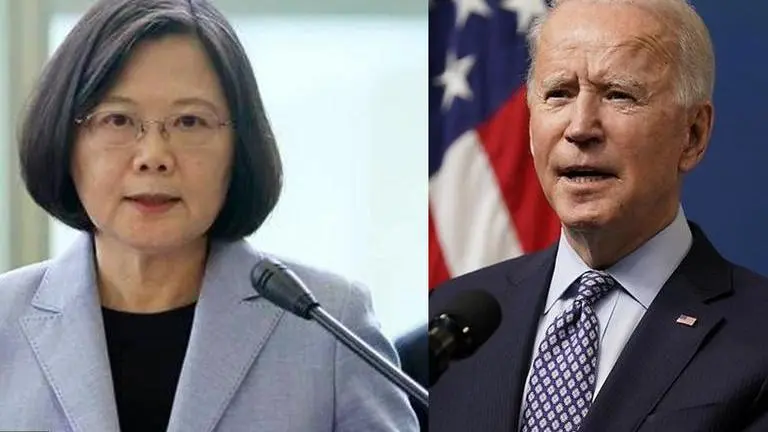Updated 24 October 2021 at 21:05 IST
US & Taiwan discuss ways to make the island 'participate meaningfully' at United Nations
On October 22, Taiwan and the United States senior officials discussed methods to allow the island nation to 'participate meaningfully' at the United Nations
- World News
- 3 min read

On October 22, Taiwan and the United States discussed methods to allow the island nation to 'participate meaningfully' at the United Nations. After a recent clarification from the White House that their approach towards Taiwan would remain unchanged, the US stated that 'high-level representatives' of the US State Department and Taiwan's Foreign Ministry had discussed 'expanding Taiwan's participation at the United Nations and in other international fora'.
The US State Department said,
The discussion focused on supporting Taiwan's ability to participate meaningfully at the UN and contribute its valuable expertise to address global challenges, including global public health, the environment and climate change, development assistance, technical standards, and economic cooperation.
US participants reiterated the US commitment to Taiwan's meaningful participation at the World Health Organization and UN Framework Convention on Climate Change and discussed ways to highlight Taiwan's ability to contribute to efforts on a wide range of issues.
Meanwhile, Taiwan's Foreign Ministry expressed gratitude to the United States for their 'firm support'.
The discussion was chaired by the Principal Deputy Assistant Secretary for international organisation Hugo Yon, Deputy Assistant Secretary for China, Taiwan, and Mongolia, Rick Waters, and Taiwan's de facto Deputy Ambassador in Washington Wang Liang-yu.
Advertisement
The discussion comes to the fore ahead of Chinese President Xi Jinping's address at the UN on October 25 to mark the 50th anniversary of the People's Republic securing its seat at the UN.
What is the China-Taiwan feud about?
Taiwan, officially the Republic of China (ROC), is an island that shares maritime borders with China (People's Republic of China, PRC). The political, social and international status of the island state continues to be contentious as a result of the Chinese Civil War and a subsequent split of China namely, ROC and PRC.
Advertisement
The question persisted for decades, whether Taiwan should remain a territory of ROC or merge with the mainland under the PRC. The Taiwan issue subsists in the international organisational system and question remains on whether Taiwan's existence as a sovereign state as both ROC and as a part of PRC should be legitimised. Currently, the Taiwan identity row hinges on subjects and matters of international law as well.
In 1971, after the vote by a majority in the United Nations, PRC was recognised. However, ROC continued to claim itself as the legitimate representative of China, compelling Taiwan to maintain unofficial and representational ties with states and institutions.
While the island is claimed by the PRC, the Xi Jinping-led regime refuses to acknowledge and recognise Taiwan's independent diplomatic relations with foreign entities. Domestically, the major feud is between sides and political parties that either favour the Chinese unification notion as opposed to those aspiring a formal international recognition and legitimacy in a bid to attain Taiwanese identity.
Published By : Srishti Jha
Published On: 24 October 2021 at 21:05 IST
